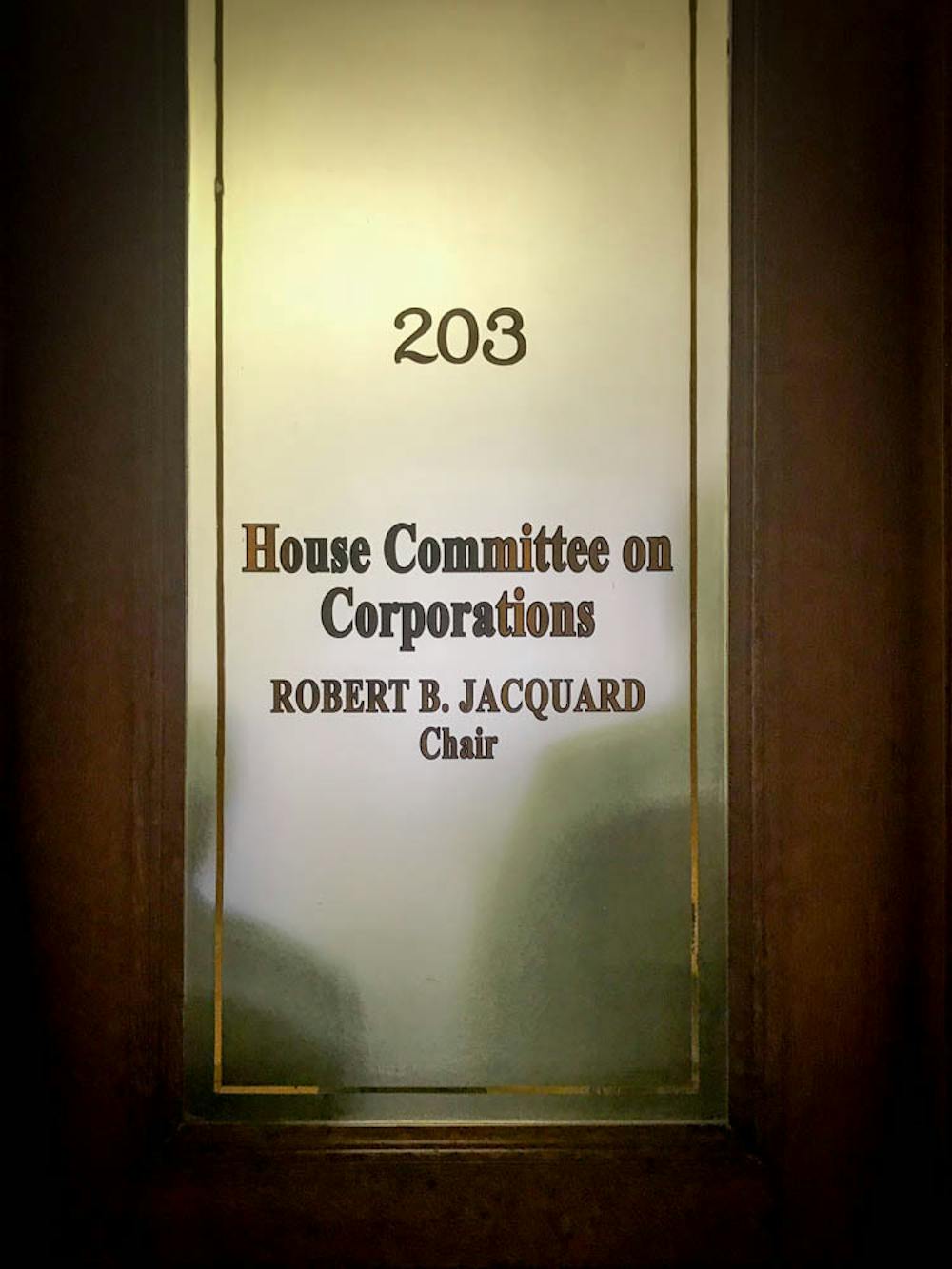A bill that would require Uber, Lyft and taxi drivers to undergo a national background check before being allowed to work in the state went before the Rhode Island State Legislature’s House Committee on Corporations Tuesday night.
Assistant Attorney General Joee Lindbeck, who spoke for the bill in front of the committee, feels that current background checks for the transportation services are inadequate.
Uber’s background check policies state that, in order to become a driver, a person may not have “a conviction for a felony, violent crime or sexual offense within the last seven years, among other things such as a registration on the U.S. Department of Justice National Sex Offender Public website.” Uber’s website also says that the company uses the background check company Checkr, which is “accredited by the National Association of Professional Background Screeners.” But Lindbeck believes these third party background checks are not thorough enough to ensure rider safety.
“We think actually (that the background checks) may be illusory because your statute says they can only go back seven years,” Lindbeck said, adding that, for example, someone convicted 10 years ago of a first degree robbery and released recently would pass a private background check. “We think that’s very scary, especially when we have many colleges campuses in the neighborhood,” she said.
Legal processes in other states have shown the inadequacy of private background checks, Lindbeck added. Once Massachusetts passed a 2017 law requiring state background checks for transportation network company operators, such as Uber and Lyft drivers, the state discovered that 11 percent of the state’s Uber drivers had “disqualifying information” on their records, including incidents of sexual abuse and exploitation. Additionally, California missed about 30,000 registered sex offenders in the third-party background checks, she said.
If the bill were to pass, drivers in the state would be required to undergonational background checks completed through the FBI prior to their employment. Convictions, not arrests, revealed on the national background check could affect a person’s ability to obtain a permit or license to drive in the state.
Thomas Kogut, associate administrator at the Rhode Island Division of Public Utilities and Carriers, also spoke in favor of the bill at the House hearing. Neither Uber nor Lyft elected to present spoken testimony at Tuesday’s hearing.
The Senate Judiciary Committee heard the bill Feb. 13 and held it “for further study,” according to the R.I. Legislative Status Report. During the state Senate hearing, Sen. Harold Metts, D-Providence, expressed concern that requiring national background checks would prevent individuals who “had turned their lives around” from working and supporting their families. In response, Lindbeck said that the law would allow TNCs or taxi companies to have the discretion to keep the person employed. If the law passes, an individual would not be able to obtain a Hackney Operator’s License, necessary for taxi drivers, or transportation network operator permit, which applies to Uber and Lyft drivers, without the in-depth background check.
The American Civil Liberties Union expressed opposition to this legislation with written and spoken testimony at the Senate hearing. According to Steve Brown, executive director of the Rhode Island ACLU chapter, the expansion of background checks hurts ex-offenders.
The House committee recommended the bill be held for further study.





